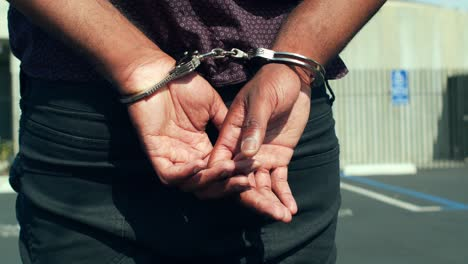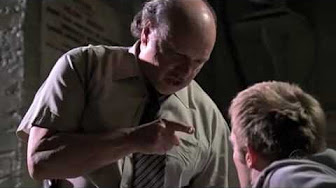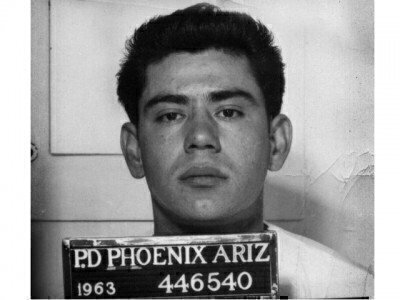
Why is it called Miranda Rights (History Explained)
home > blog articles > why is it called miranda rights (history explained)

Miranda Rights date all the way back to 1963 when a young man in Phoenix, Arizona by the name of Ernesto Miranda agreed to go down to the police station to participate in a line up involving an incident that happened. What Ernesto Miranda was being looked at was a kidnapping, rape and robbing of an 18 year old female.
Police were unable to get an immediate identification from the lineup but while in police custody Miranda was questioned for two hours without a lawyer. At one point, the detectives brought the victim into the room.
Miranda eventually offered details of the crimes that closely matched the victim’s account. He agreed to formalize his confession in a written statement, which he wrote out under the words, “this confession was made with full knowledge of my legal rights, understanding any statement I make may be used against me.”
What happened to Miranda's confession?
Ernesto Miranda's confession was used as sole evidence when he was tried and convicted for the crimes by an Arizona court. Miranda’s lawyer, Alvin Moore, appealed to the Arizona Supreme Court six months later, posing the questions:
“Was [Miranda’s] statement made voluntarily?” and “Was [he] afforded all the safeguards to his rights provided by the Constitution of the United States and the law and rules of the courts?”
The Arizona Supreme Court ruled in April 1965 that Miranda’s confession was legitimate and that he had been aware of his rights.
Miranda's case goes all the way to the United States Supreme Court
In the Supreme Court case what was being looked at was not only the sixth amendments to the Constitution but also the fifth amendment rights to self incrimination.
The United States Supreme Court, under Chief Justice Earl Warren, overturned the Arizona's highest Court's decision. In a 5-4 ruling, the Supreme Court held that Miranda’s confession could not be used as evidence in a criminal trial.
Warren’s 60-plus-page written opinion, released on June 13, 1966, further outlined police procedure to ensure that defendants are clearly informed their rights as they are being detained and interrogated or in another way put "custodial interrogation."
Why is it called Miranda Rights? Upon the United States Supreme Court decision in Miranda v. Arizona, Chief Justice Earl Warren's opinion defined custodial interrogation which became the Miranda Rule.
The Miranda Rule during police questioning would include the right to remain silent, anything said could be used against the suspect, the right to an attorney and if you cannot afford an attorney one will be appointed to represent you.
Why is it called Miranda Rights?
Miranda rights are in actuality the rights you retain as a citizen pursuant to the fifth amendment to the United States Constitution. It is a constitutional right to protect you against self incrimination or to testify against one's self.
Miranda Warnings are what police officers give to suspects being questioned about criminal activity.
What many believe they should have been given Miranda Rights would be in fact their Miranda Warnings. Now see below Miranda warning.
What are your Miranda Warnings?
The following warnings have been determined by the courts to be provided by law enforcement officers to suspects.
-
You have the right to remain silent;
-
Anything you say can and may be used against them in a court of law;
-
You have the right to have an attorney present before and during the questioning; and
-
You have the right, if you cannot afford the services of an attorney, to have one appointed, at public expense and without cost to you, to represent you before and during the questioning
-
The Miranda Warning must be given meaningful. Suspects will be asked if they understand their rights.
-
Miranda Rights should be given in the suspects language.

When do cops have to read Miranda Rights?
Miranda Warnings are what is read to people by police officers while in custody and questioning or interrogation is taking place.
The big takeaway here is are you free to leave. Do you feel that you can walk away from the law enforcement officer. This can be an argument that many people can have because the police may or may not tell you that you are free to leave at any time.
Are Miranda Rights and Miranda Warnings the same?
Miranda Rights are the rights that you as an individual citizen have according to the 5th Amendment to the United States Constitution.
Miranda Warnings are what a police officer gives to you verbally and in many circumstances written. They are warnings that you are about to be asked questions and depending on how you answer them may incriminate you.
The Miranda Warnings are given to you so that you may know your rights.
When are Miranda Rights required?
When a law enforcement officer is questioning a person about criminal activity or criminal charges and that person is not free to leave then this should trigger the police officer to give the suspect his or her Miranda Warning.
Do police have to read Miranda Rights?
Police Officers have to read Miranda Warnings making you aware of your rights pursuant to Miranda. That can be confusing but what you have to know is that if you are free to leave from the questioning by police then NO the police don't have to read you your Miranda Warnings.
When are you supposed to be read your Miranda Rights?

It depends on whether or not you are in police custody and you are being questioned about criminal activity.
Many times people end up in custody or under arrest and law enforcement does not ask them about criminal activity but do not confuse this with booking questions about biographical information in which you do not have the right to remain silent.
Do Police have to read you your Rights?
Law enforcement sometimes develops enough probable cause against the person arrested that they will not ask them any questions. The police will put forth the charges in the criminal case without any type of police questioning of the suspect.
I was not read my Miranda Rights. Will my case be dismissed?
Not likely, but possible. It depends on the case, what the issue is and what type of evidence was gained after the questioning started. It can be quite possible that you were not in police custody and free to leave when the questioning had started.
Take for instance a law enforcement officer stops a vehicle for suspicion of DUI. It is not until the operator feels that or the officer tells him that he is not free to leave. At that point something has happened and a Miranda warning would need to be required in order to continue questioning.
When police fail to provide Miranda Warnings a good criminal defense lawyer can file and present a motion in court during the criminal proceeding.
About the Author
Brian Humenuk isn't just an entrepreneur in eCommerce, he is also an informed leader whose experience provides followers and visitors with a look into current and past police issues making headlines in the United States.
Brian has earned three degrees in Criminal Justice with the last, a Masters of Science in Criminal Justice Administration.
Brian extends his training, education, and experience to the officers just now getting into the field so that they may become more informed police officers and stay clear of police misconduct and corruption.
You can find out more about Brian and the COPJOT story on the ABOUT US page.
Affiliate Disclosure
COPJOT is supported by its audience. If you make a purchase through links on this site I may earn a small affiliate commission. Enough to buy myself a small coffee and I want to thank you in advance.
More Information
Are you a Police Officer, Sheriff or State Trooper, Law Enforcement family member or friend check out our Custom Police Notebooks.
Publishing significant Police related blog articles is not the only great thing we do. We manufacture, customize and personalize Custom Police Notebooks and Notepads for Police Officers and law enforcement agencies worldwide.
Related Articles
Best Tips for Writing Police Reports
Police Court Testimony – What might you face in the eyes of justice

